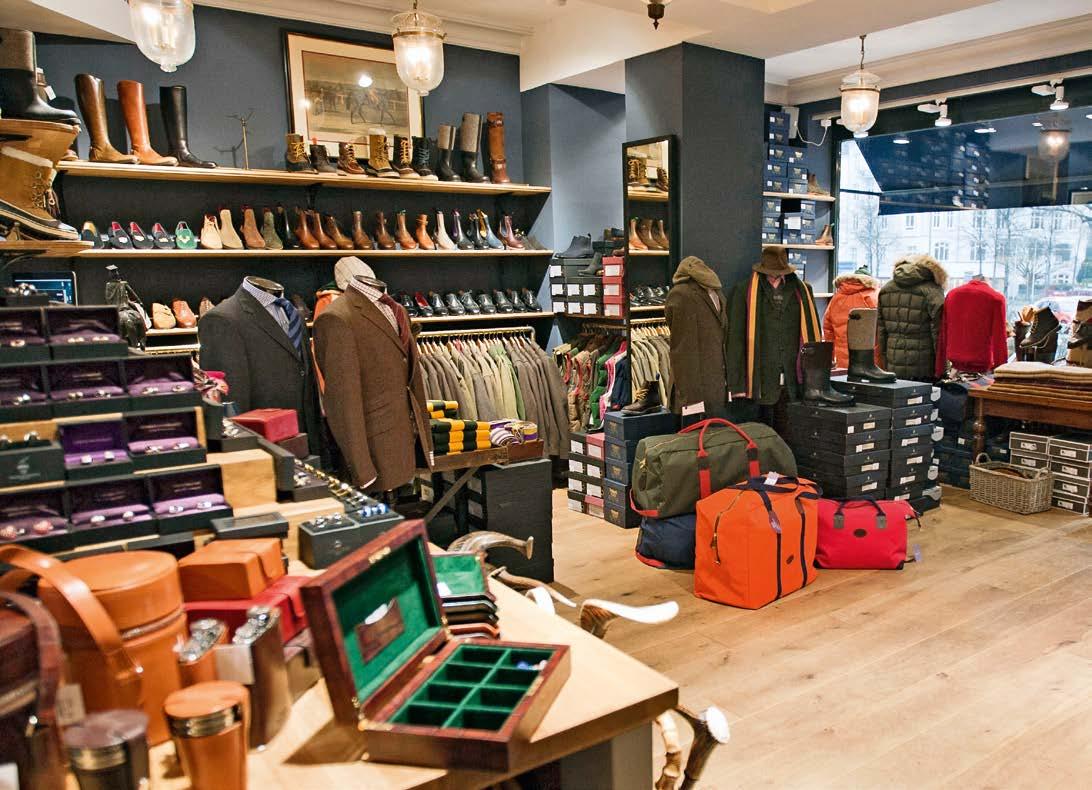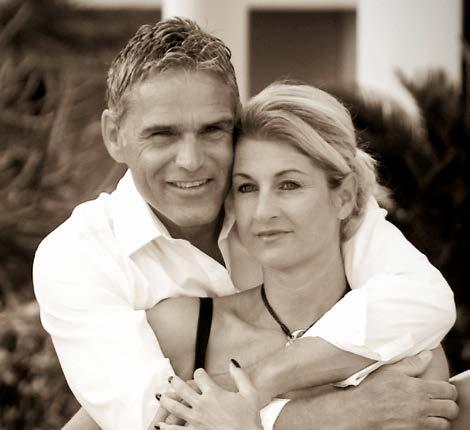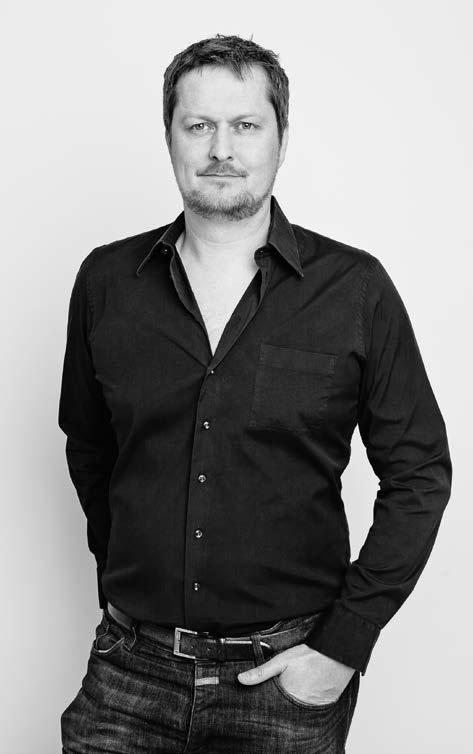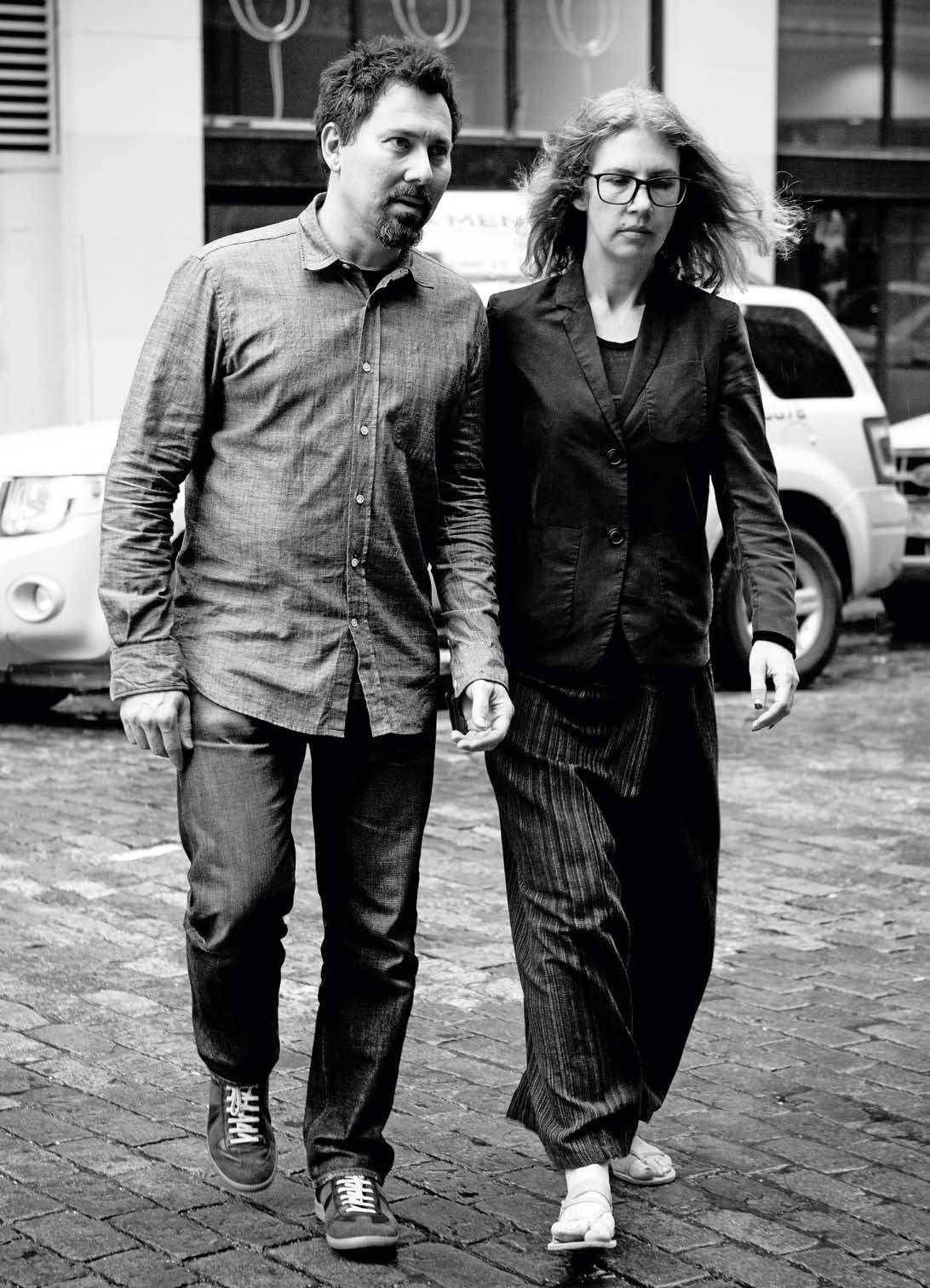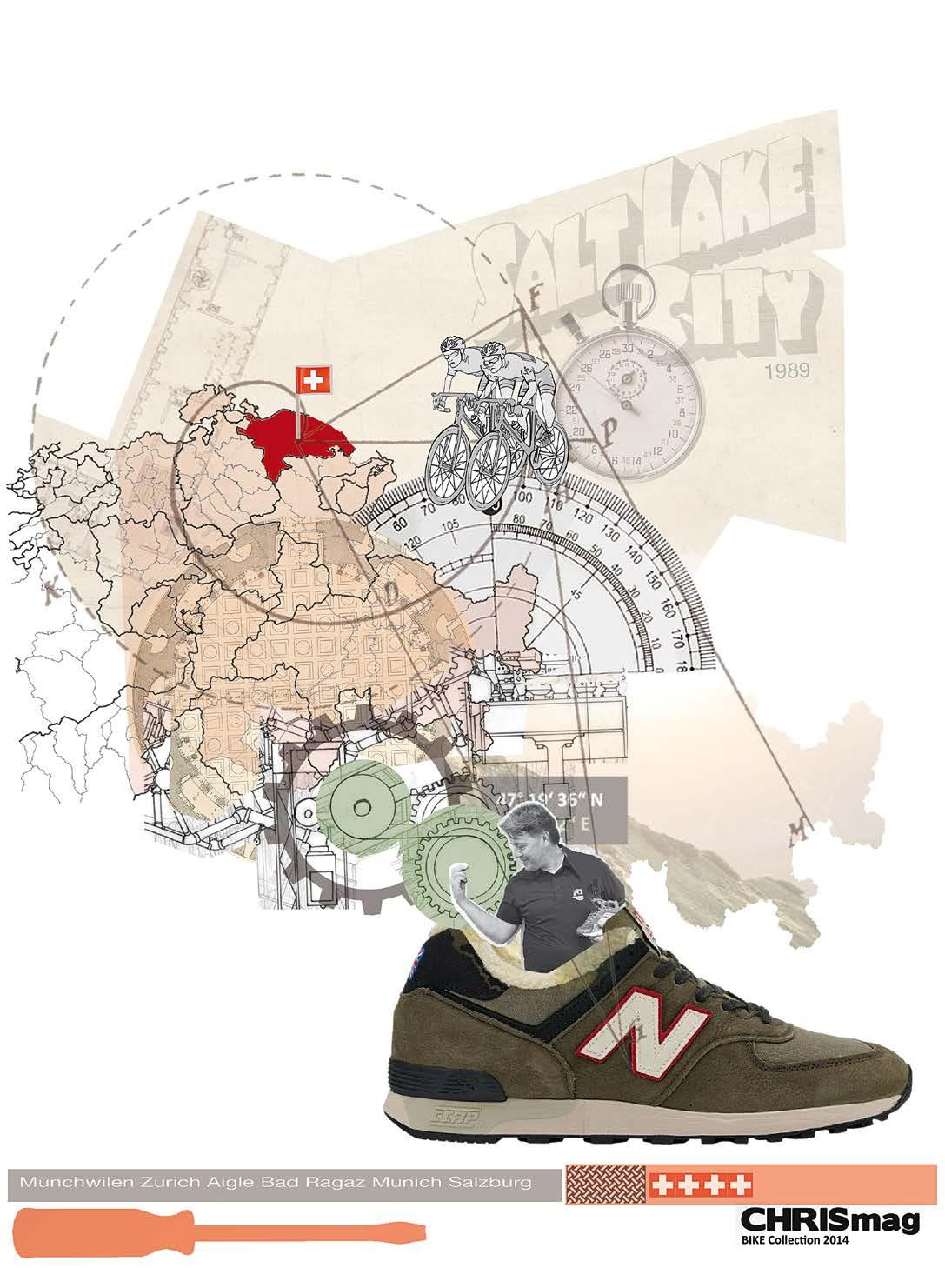
6 minute read
Think Green
Fair or ecolog- ical: More and more retailers are dealing with the topic - like Kastner & Öhler in Graz.
The market for sustainable fashion has finally grown up. The range is becoming more and more professional and broader. And the interest of retailers is gradually increasing too. It’s high time for a change in consciousness.
Text: Ina Köhler. Photos: Companies, Lupi Spum For the summer season Ludwig Beck decorated its shop windows with an upcycling theme. This is all the rage at the moment; green issues are ubiquitous. And the range of sustainable fashion seems huge. There are countless green brands and labels on the market. At trade shows in Berlin - such as the Ethical Trade Show - buyers of retail heavyweights like P&C, Otto, and Zalando have begun ordering green. But how much of it ultimately reaches the consumer? According to studies conducted by the market research institute GfK, the proportion of eco-label clothing stands at a meagre 3.7%. This could change soon, as the consumers are showing an increased interest in sustainably and fairly produced fashion. But where can you find such items? Every supermarket now clearly labels organic food. The situation in the textile retailing industry is somewhat more complex. Conventional pieces hang next to organic cotton with fantasy labels and an inscrutable amount of certificates makes it more difficult to gain an overview. So shopping turns into a matter of trust and the retailers act as a guarantor for a clear conscience. “It’s like a weekly market”, says Renate Hunfeld, who has been running the sustainable store Suburbia in Düsseldorf for six years. “The retailer guarantees freshness and local ingredients, thereby making sure that the consumer doesn’t have to worry.” Scandals surrounding the conditions in the global textile production sites promote this trend. “More and more consumers are sensitised”, explains Bernd Hausmann, the founder of the four Glore stores in Nuremberg, Munich, Hamburg, and Stuttgart, in which he sells ecological and sustainable fashion. “If ZDF broadcasts a report on sandblasted jeans, the consumers start asking about the production conditions. Following the disaster in Bangladesh, it was very noticeable that more customers visited the store and the access rate of our online shop even doubled.” This is also confirmed by Renate Hunfeld: “The media play an important role; many consumers want to know more about the products and make it quite clear that they no longer want fashion that is produced under such conditions.”
The Market Grows Steadily
In Germany alone there are more than 60 stores that specialise in ecological and fair clothing and the number is on the rise. Katharina Partyka only recently opened her second store named “Kiss the inuit” in Bonn and in Düsseldorf “Fräulein Bredow” started showcasing selected sustainable fashion in spring. The platform “Get Changed” lists the stores by cities and shows the consumers where they can find what they’re looking for. The vertical retailers are not sleeping either. In their communication campaigns they cleverly play with ecology and fairness. C&A, for example, presents itself as one of the global market leaders regarding organic cotton, while H&M recently announced that it will exclusively use cotton supplied by sustainable sources by 2020. It’s high time for the classic retailers to follow suit… Nevertheless, a 2013 study conducted by Bonn-based retailers through the Femnet association showed that 50 of the 250 questioned stores stock brands that are either fair or ecological. The classic retailers have to play the sustainability card quite deliberately. For example, the Austrian company Kastner & Öhler created an independent menswear area this spring. Is the group a pioneer or straggler? “In my perception sustainable fashion hasn’t really arrived in the SME sector yet”, says Sebastian Proft, the managing director of the traditional fashion retailer Dollinger in the Berchtesgaden area. “However, we must not let the vertical rivals take the topic out of our hands.” This is why ecological and fair fashion is one of the three focus areas defined by the Dollinger management. We are aiming for a minimum of five percent of the entire product range by the autumn/winter season. The proportion will be increased in the long term. “Of course it is a significant investment and we have to ensure that we can remain profitable in the process.” Dollinger is introducing brands such as Ragman, Outfitters of Change, Gardeur, and Nudie Jeans to its sales floor, while the women’s outerwear section stocks brands like People Tree, Racine du Ciel, and Armed Angels. Unlike some competitors Sebastian Proft aims to mix the products on the sales floor: “We will come up with a labelling system for our communication measures.” According
to Proft, the traditional dress market, which is a speciality of the company, is still finding it difficult to adjust. “Most of the very small manufactures are not sensitised yet, even though they mostly produce in South Eastern Europe. However, we will cooperate closely with the manufacturers to ensure that they, for example, focus more on ecological materials.”
Mix or Separate?
Wolfsburg-based fashion house Hempel has more experience with sustainability than most. “We started as early as 2008”, says owner Anette Hempel. “The most important thing when choosing the brands is that their style suits us. They shouldn’t be too expensive or progressive and have to be professionally man- aged. And as a retailer you really need to be committed to the cause, because the margins are often not particularly attractive.” In Wolfsburg, consumers can find brands such as Good Socie- ty, Haikure, Knowledge Cotton Apparel, Lanius, Langerchen, Nudie, Wunderwerk, Umasan, and Format. The labels were mixed initially. However, they are grouped by colours and styles this season. Additionally, they are placed centrally within the store and labelled with a “style plus” logo. “It’s an indicator that tells our customers that the product is special”, Anette Hempel says.
Flood of Certificates
All retailers complain unani- mously about the complexity of the certificates; they confuse retailers and consumers alike. “We work with Fair Trade and GOTS”, Anette Hempel explains. “Obviously it is vital to trust your suppliers. If they do something wrong, then we suffer too.” Sebastian Proft comments: “If I could ask politicians for something, then I would want the existing GOTS label to be declared as the standard rather than developing something new. It would be more sensible to invest the money in meas- ures that facilitate the costly certification process for smaller

Anette Hempel, Modehaus Hempel

Sebastian Proft, Dollinger Mode

“More and more consumers are sensitised.”
Bernd Hausmann, Glore
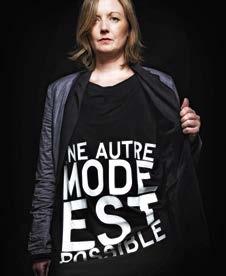
Renate Hunfeld, Suburbia Store manufacturers.” The labelling is equally important for the “green” stores. “It’s a safety net for the customers”, Katharina Partyka, the founder of “Kiss the inuit”, says. “Certificates are the most important criteria for us”, Glore’s Bernd Hausmann confirms. “In my opinion, GOTS is the most recognised label.” Renate Hun- feld shares this view, but adds: “It’s still not sufficiently known among the consumers. In my capacity as a retailer, I have the duty to communicate with my clients directly.” On a political level, the idea of the German development aid minister Gerd Müller to intro- duce a standardised textile seal was met with little enthusiasm. Jan Eggert, the spokesman for the foreign trade association of the German retail trade (known as AVE), described it as “com- pletely unrealistic”. The argu- ment is that such a move would make clothing unaffordable for large parts of the population. However, it is quite amazing that many retailers have already prov- en the contrary. Sustainability has been an important economic factor in the retail industry for quite some time.

